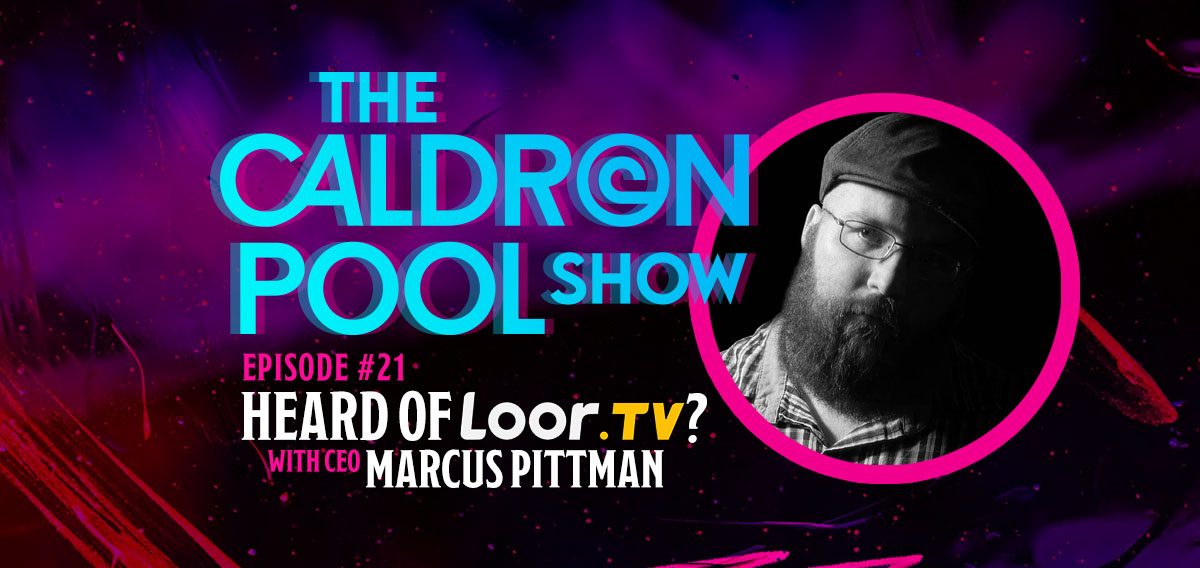John answered, “Master we saw someone casting out demons in your name, and we tried to stop him, because he does not follow with us.” But Jesus said to him, “Do not stop him, for the one who is not against you is for you.”—Luke 9:49-50
As we read the news we see Christians under attack across the globe. Whether it be Christian schools, bakers, artists, doctors, web designers, counsellors, academics, or pastors, all are facing increasing persecution from every side. The persecutors do not discriminate against any particular brand of Christian.
In the world today there are countless religious groups that are called “Christian,” but are separated by differences in doctrine and practice. Satan would have us emphasise our differences so that he can divide and conquer us. When the church faces hostility from the world, however, it often comes together.
In Luke 9:49-50 Jesus lays down a paradigm of Christian fellowship that posits the world at war with his kingdom. You are either fighting together with Christ or fighting against him. Hitherto, pacifistic ecumenicalism stressed, “Let us be at peace with one another,” the times are now calling for a new militant ecumenicalism that cries, “Let us go to war alongside one another.”
Not With Us
As Jesus and the disciples were traveling along the road, the apostles spotted a man who was in the process of casting out a demon. Even though this man was invoking the name of Jesus the disciples tried to hinder him. The basis for their opposition to him was that“he did not follow with us” (ESV). He was not one of the twelve apostles and probably not a part of the next circle of seventy-two disciples sent out later (Luke 10:1-24).
He was clearly a man on the margins of the larger mass of followers called “disciples” of Jesus. Nonetheless, he was invoking the name of Jesus Christ. The most fundamental unity of Christ-ians is that they are all called by the name of Christ. When the church makes disciples she baptises them “in the name [singular] of the Father, and of the Son and of the Holy Spirit” (Matt 28:19). The message of the gospel declares that “there is no other name under heaven given to men by which we must be saved” (Acts 4:12).
In fact, all the early creeds in the first five centuries of the church focused on defining the truths concerning the name of the Father, the Son, and the Holy Spirit—defining this God whom we serve. The first point of unity among all Christians is that they proclaim the name of Jesus Christ.
The apostles opposed this man because he was not one of them. John explained to Jesus that“he does not follow with us.” The NIV translation conveys the gist of John’s concern more clearly: “He is not one of us.”This guy did not belong to the twelve apostles or their recognised wider circle of associates. The apostles were the closest to Christ.
Since the Twelve actually were taught by Jesus, they were the most trustworthy representatives of what it means to follow Christ. So who was this maverick, thinking he could do works in Jesus’ name?
Humans are cliquish by nature. We define our groups—who is in and who is out. We create tribes and camps, and we distrust those who do not belong to our group. Since they are not part of our group we question their legitimacy. This is the natural tendency of humans, and we need to guard against dismissing other Christian denominations simply because “they do not follow with us.”
Over the course of two millennia, the Christian church has splintered into various groups that practice the faith differently. Many bemoan these distinct denominations, but it is actually a wise and necessary outcome.
When Christians have an irreconcilable difference on a point of doctrine, the most peaceable way forward actually is to separate. You could call it achieving a “seperate peace.” Otherwise, they will perpetually fight with each other until one side subdues the other or forces them to leave.
Antithetical beliefs on issues are often impossible to maintain within a single Christian group, such as the validity of infant baptism and the structure of church government. As a result, different groups have formed over the ages. They find it better to be at peace apart, instead of at war together. Though they are no longer formally together, they can still recognise each other as carrying the name of Christ.
What do we do when we are required to stand with fellow Christians whom we perceive as having an inferior understanding of the faith? No doubt the twelve apostles had a more accurate and intimate knowledge of Christ than this man on the margins.
Who knows what flaws this bloke had in his theology? It is natural that we look critically on the differences and deficiencies of other Christian groups. Though each group assumes they are accurate, some are more accurate than others (Acts 18:25-26).
Without apology, I can assert that the corpus of doctrines found in the classical creeds and Reformational confessions that the Reformed and Presbyterian churches uphold is the most accurate representation of biblical Christianity in the world. Any divergence from this produces an inferior version of Christianity.
We may be tempted then to disdain or not associate with other Christians we deem inferior. However, to do so undermines the thrust to collaborate with others in Christian ministry and come to their defence when they are attacked.
When the Australian rugby player Israel Folau came under attack by the media and Rugby Australia (RA) for his views on repentance and homosexuality, Australian Christians by and large came to his defence.
Subsequently, articles came out about some of the flaws in his church’s Trinitarian theology and some questionable practices in his church. Doubts began to creep in that maybe this athlete was not worthy of our support.
Instead of standing with Israel Folau, an excuse was given to stay distant from him. This is a dangerous response. Let us be careful to recognise that just because someone is of another group and their beliefs may have flaws, to the extent that they uphold the name of Christ and the truth of his Word let us continue to assert that, “There is one body and one Spirit—just as you were called to the one hope that belongs to your call—one Lord, one faith, one baptism, one God and Father of all, who is over all and through all and in all” (Eph. 4:4-6). And let us confess as the Nicene Creed declares, “we believe in one holy, catholic, and apostolic church”.
For You
After John defends their obstruction of the man’s exorcism efforts, Jesus corrects his disciples by arguing that though he may not be “with you,” he still is “for you.” This man is on their side.
The man was engaging in an act of spiritual warfare. He was casting out demons in the name of Jesus, the very same actions that Jesus and his apostles had been doing in their ministry. All of them were involved in the same spiritual warfare.
Though we long for the church to be at peace, in this age the church is always at war.“Since the days of John the Baptist till now, the kingdom of God suffers violence, and the violent take it by force” (Matt 11:12).
Theologians refer to the church in this world as the church militant. One day in heaven we will be a part of the church triumphant, but now we are in a perpetual war. The problem comes when Christians do not realise that they are in a spiritual conflict, or do not want any part of it.
Very few Christians have been involved in an actual demonic exorcism, but every Christian conversion is an attack on Satan. Jesus said he was the “stronger one” who had bound up the “strong man” and was stealing his possessions (Luke 11:21-22). The proclamation of the gospel of Jesus Christ is a declaration of war against the world and the domain of darkness.
Every Christian who proclaims this message of salvation is engaged in a spiritual battle. If we think that as long as we “stick to the gospel” or “focus on Jesus,” and avoid all those controversial topics like God, sin, salvation, idolatry, sexual immorality, heaven, and hell we are playing it safe, we are fooling ourselves. We have now moved into a new phase where the gospel itself is “hate speech,” because the gospel proclaims that Jesus saves sinners. What message could be more offensive to this generation?
This man on the margins was fighting the same spiritual fight as the apostles, thus he is “for them.” He was one of their allies in Christ’s war against Satan. There ought to have been a camaraderie in their mutual conflict.
To the extent that any Christian church is engaged in gospel ministry proclaiming the salvation found in Christ they are allies. Likewise, to the extent that any denomination teaches the Biblical doctrine of how a Christian ought to live godly and faithfully in this age, they are allies. The church needs to look for and identify all Christians who are fighting the good fight of faith.
Unfortunately, because this man was not following with them the apostles “tried to stop him.” Hence, Jesus had to reprove them, “Do not stop him.” Instead of hindering his work, they ought to have supported his work. The warfare of this age has innumerable fronts and battles, any one group can not be engaged in every battle.
The overall scope of the work to reach every corner of the world and every people group for the gospel, coupled with the countless varieties of Christian works of service addressing the manifold temporal miseries of this age, require a level of supportive cooperation among all genuine believers to advance the kingdom of Christ.
Like this man who was attacking the domain of darkness, we need to identify whoever is doing a faithful work and support them. And when they come under attack we need to stand with them. Sadly, too often when Christians are attacked they end up standing alone. We see a brother or sister being assaulted by the fiery darts of the evil one, and we desert them lest we too come under fire.
When the Queensland Christian school, Citipointe Christian College, was assailed by the media, politicians, and Christian pastors for upholding a biblical ethic on sexuality, it resulted in the retraction of their policy and the resignation of their principal. Instead of rushing to their aid, the overwhelming majority of the Christian community played it safe and hid in the shadows.
The warfare we are facing requires us to identify our allies and be faithful to stand with them in the fight. Oh, may it not be said of us what Paul said of his contemporaries, “At my first defence, no one came to stand by me, but all deserted me. May it not be charged against them! But the Lord stood by me and strengthened me,” (2 Tim 4:16-17).
Against You
Jesus gives a simple definition of those who are “for you”—they are the ones who are“not against you.” An apology to the woke ideologues of our day, but Jesus sees the world through a blatantly binary lens. “Whoever is not with me is against me” (Matt 12:30) and “The one who is not against you is for you” (Luke 9:50).
Jesus frames the world as a battle between his kingdom and the kingdom of Satan. The battle lines are drawn, and you must choose a side. Since the entrance of sin into the world in Genesis 3, there has been enmity between the offspring of Satan and the righteous offspring of Eve.
Christians will know their opponents because they will be fighting against them. Who is attacking Christians throughout the world? Militant Communism, Militant Hinduism, Militant Islam, Militant LGBTQ+, Militant Atheism. Nationalist Hinduism has expelled many Christian ministries out of India. Atheists and secularists are excluding Christianity from the public square, our schools, and our prison system. And the LGBTQ+ crowd is seeking to cancel Christians from all participation in society while shouting, “No room for bigots!”
Though these groups maintain many antithetical beliefs, they seldom attack each other while they share a common enemy in Christianity. These strange bedfellows generally work together in opposition to Christians.
Radical feminists issue warnings that the election of a Christian politician will end women’s rights in society, yet they are eerily quiet about the overt oppression of women under Sharia-law in Muslim-majority countries and communities— i.e. female circumcision, child-bride arrangements, unjust retribution, divorce, rape, and child-custody laws, employment, education, and driving restrictions, et cetera.
The infamous atheist Richard Dawkins attacks the Bible and the God of Christianity, but he seldom challenges the Koran or the Allah of Islam.
When Haneen Zreika, who plays for the Greater Western Sydney Giants in the Australian Football League Women’s (AFLW), refused to wear a gay pride jersey due to her Islamic faith, her teammates (some of whom were lesbians) supported her, and media commentators defended her decision saying she showcased the league’s commitment to diversity and inclusion.
In contrast, when Christians express their religious commitments they are deemed worthy of exclusion—witness the termination of Israel Folau by Rugby Australia or the Christian doctor Jereth Kok whose medical licence was suspended by the Medical Board of Australia. Why is there such solidarity among these seemingly contradictory groups?
Jesus explained it simply, “A house divided against itself cannot stand. And if Satan casts out Satan, he is divided against himself. How then will his kingdom stand?” (Matt 12:25-26). They are all on Satan’s side. These opponents are aligned with each other against Christians because they are all ultimately opposed to Christ.
Identifying those who are not “with Christ” can be easy, especially if they do not identify as Christians or openly oppose the church, but there is a more insidious enemy— the enemies among us. There are people who carry the name of Christ, supposedly follow Christ, but are actually opposed to Christ.
Let us not forget that one of those original twelve apostles, Judas, instead of casting out Satan became possessed by him. Time and time again, Satan infiltrates the church with wolves in sheep’s clothing and attacks the church from within. It is not enough that a person is a baptised member of a Christian church or a duly-ordained minister of the gospel, if they support the agenda of the world they“do not gather with me [Jesus] but scatter” (Matt 12:30).
Like a soldier in the midst of a firefight who turns his weapon on his fellow soldiers, are Christians who side with their enemies and fire upon fellow Christians. When professing believers from within the Christian community no longer maintain the essential doctrines of the Christian faith and the biblical ethics of godly living, it is incumbent upon faithful Christian leaders to identify them and hold them to account.
The apostle Paul said of living in this world, “Redeem the time, for the days are evil” (Eph. 5:16). Indeed, the days ahead are looking very evil. The Christian communities in all the post-Christian countries need to prepare for the upcoming onslaught. We need to take note of those fighting on behalf of Christ, whether they be of the Protestant, Catholic, or Orthodox strands of the Christian church, or within Protestantism—Presbyterian, Anglican, Baptist, or Pentecostal.
We are entering a time when true Christian ecumenicalism is not about “birds of a feather flocking together,” but “bands of brothers fighting together.” Those who uphold the veracity of the Scriptures, the creation of male and female after God’s image, the person and work of Christ, biblical sexual identity and morality, the sanctifying grace of the Holy Spirit, the preeminence of the triune God in public worship, and the eternal hope of redemption will need to stand together.
New battle lines are being drawn around these issues, and Christians who stand on the wrong side should no longer be seen as being “for Christ.”
In the fires of adversity, we may be surprised by new friends from unexpected quarters and shocked by old friends who turn against us. As we stand together for Christ may our new alliances forge even sweeter bonds of Christian fellowship.


















